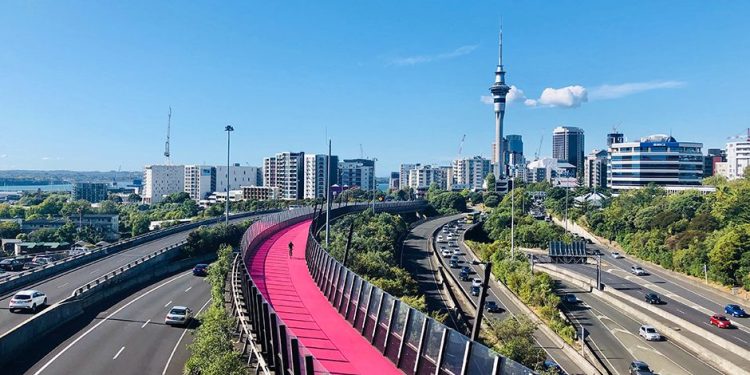Are motorists being shafted by Auckland Transport?
New Zealand’s largest city isn’t a cheap place to live at the best of times. But, new numbers released this morning show that it’s particularly pricey when it comes to the amount of traffic fines issued each year. And, the number is growing.
According to a report by the NZ Herald, the amount of money Auckland Transport has generated through traffic fines has increased by approximately 60 per cent since 2017 — $46.3million in revenue having been made in 2019 alone. Over the same two years, the amount of tickets issued has increased by a third, too.
Auckland Transport issues tickets for all sorts of things; from using private cars in bus lanes, to parking violations. The majority of the increase in fines is connected to offences committed by moving cars, namely through bus lane and T2/T3 violations. The fines align with AT’s increased investment in fixed cameras.
Over the course of 2019, 118,915 parking fine offences were recorded by Auckland Transport in Auckland Central — almost six-times more than the next most ticketed region of Auckland, Epsom (20,826). Takapuna (17,218), Grey Lynn (17,210), Parnell (15,263), and Newmarket (13,605) follow.
Between 2017 and 2019, the amount of infringements committed by moving cars rose from 48,777 to 152,994 — revenue subsequently increasing from $7.0million to $21.6million. Stationary vehicle infringements recorded by AT have also grown, but to less of a degree, from 379,937 to 405,211 cases and $22.3million to $24.7million in revenue.
The Automobile Association (AA) has hit out at AT over the figures, accusing the body of using “too much stick” in its policing of Auckland motorists.
“We don’t think more people are offending,” said principal adviser Mark Stockdale, “they are just getting better at catching people. I think motorists will see AT are making much more money and might read it as revenue gathering.
“The AA’s position is that there need to be realistic options before the stick is applied, and at the moment it appears there is too much stick. We do need to build that public transport network but [those options] need to be up and running before they look at applying the stick-type policies, ramping up enforcement.
“Look at the North Shore bus lane – it’s been a huge success because it’s fast and efficient. But for other parts of the city there just simply is not that option yet.”
AT responded to the claims by underlining that a percentage of the money raised by fines goes back into building infrastructure. It also noted that parking policing helps with maintaining organisation for residents and businesses in urban areas.
“There is a balance to be had,” said AT group manager of parking services and compliance, John Strawbridge, “and if someone feels like they have a valid reason for [infringing] they can write in to us.”





